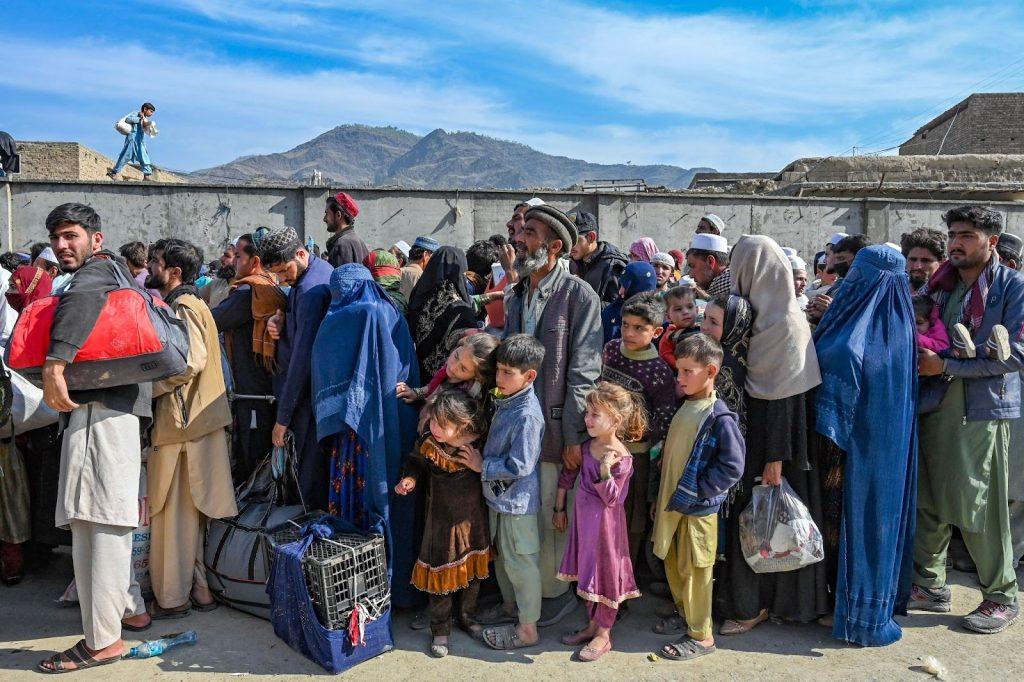
Pakistani officials said Tuesday that the United States did not object to Islamabad’s deportation of Afghan nationals who are illegally residing in the country but requested the process be slowed down during the winter.
The crackdown on undocumented foreigners, including 1.7 million Afghans, came under discussion at a meeting with a visiting U.S. delegation led by Julieta Valls Noyes, the U.S. assistant secretary of state for the Bureau of Population, Refugees and Migration.
A Pakistani official privy to the talks said that the U.S. side sought to prevent the deportation of around 25,000 “vulnerable” individuals who fled the Taliban’s August 2021 takeover in neighboring Afghanistan and could be eligible for relocation to or resettlement in the United States.
“The government of Pakistan doesn’t want to deport any vulnerable Afghan, irrespective of whether someone appears on the U.S. prospective resettlement list or any other country,” the official told VOA on condition of anonymity because he was not authorized to share details of the talks publicly.
“Pakistan is concerned over the lengthy resettlement process the U.S. has adopted,” he said. “One thing is clear: The U.S. didn’t oppose Pakistan’s deportation policy. It, however, pleaded for going slow during the harsh winters,” the Pakistani official told VOA.
VOA reached out to the State Department to seek a response to Pakistani assertions that Washington is not opposed to the deportations of Afghans but did not get a response immediately.
Neither Pakistani nor U.S. officials formally released details of the meeting Noyes held with Asif Durrani, Pakistan’s special representative on Afghanistan.
“Good to visit the Pakistani Foreign Ministry and see Special Representative for Afghanistan @AsifDurrani20 again today for discussion on Afghan refugees, protection, and resettlement,” Noyes said on X, formerly known as Twitter.
Durrani also shared a few details about his talks with the U.S. delegation on his X social media platform. “We discussed issues concerning Afghan refugees and their resettlement,” he said.
A pre-visit U.S. State Department statement said that during her four-day visit, Noyes would meet with government officials and nongovernmental and international organization partners to “discuss shared efforts to protect vulnerable individuals and accelerate safe, efficient relocation and resettlement of Afghan refugees in the U.S. immigration pipelines.”
Official data shows that Pakistan’s deportation drive has forced more than 400,000 people to return to Afghanistan since mid-September.
The United Nations and global human rights groups have criticized the crackdown and urged Islamabad to urgently halt it, noting that Afghanistan suffers from a dire humanitarian crisis stemming from years of war and natural disasters.
Pakistani authorities defend the deportation drive, linking a recent surge in deadly, nationwide terrorist attacks to the undocumented Afghan population.
In a separate statement on X, Noyes said she held an “important conversation” with representatives of the U.N. refugee agency in Islamabad and discussed “our shared commitment to support vulnerable Afghans in Pakistan.”
American and NATO troops withdrew from Afghanistan in August 2021, when the then-insurgent Taliban seized power from a Washington-backed government in Kabul. They also evacuated tens of thousands of Afghans who worked with the international military mission during its two-decade-long presence in the country, fearing they would face Taliban reprisals.
Pakistan’s otherwise close relations with the Taliban government have come under severe strain over the deportation drive.
De facto, Afghan authorities have denounced the policy as unjust and inhumane, saying it has ended the goodwill the neighboring country earned for hosting millions of refugees from conflict-torn Afghanistan over the past four decades.
The Pakistani government says the country still hosts more than 2.2 million documented Afghans, including 1.4 million legal refugees. They are not the subjects of the ongoing crackdown.

